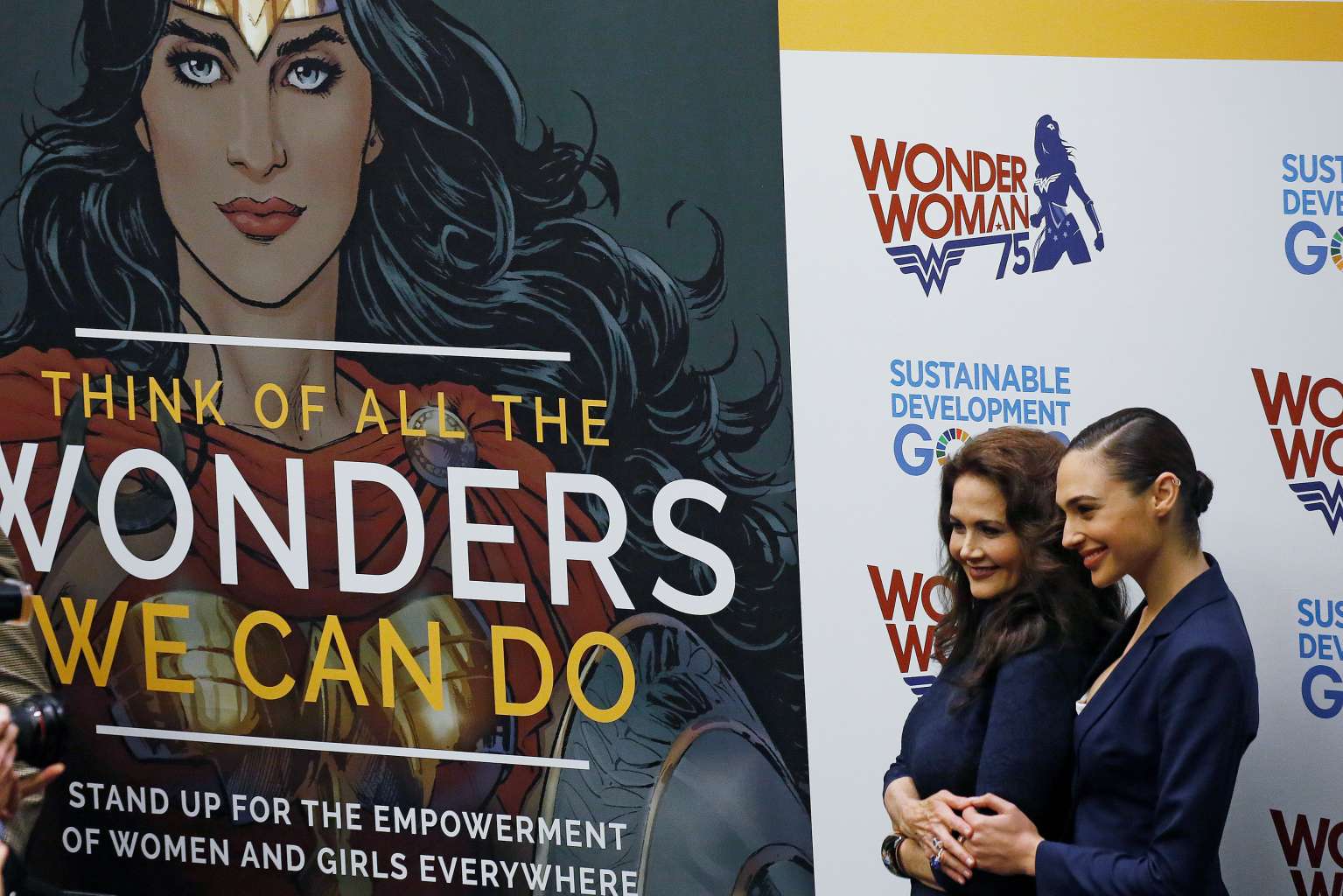Wonder Woman dropped as a UN honorary ambassador
Sign up now: Get ST's newsletters delivered to your inbox

Actors Gal Gadot and Lynda Carter pose for photos during an event to name Wonder Woman UN Honorary Ambassador for the Empowerment of Women and Girls in October 2016.
PHOTO: REUTERS
Follow topic:
Wonder Woman has been dropped as a UN honorary ambassador - less than two months after the controversial appointment was made.
The comic book superhero - an Amazonian from the all-female paradise of Themyscira - was chosen to be an ambassador for the empowerment of women and girls.
But the move backfired, with several people asking why a real woman wasn't chosen instead.
The character's "sexualised" appearance was one element critics seized on to deem the choice inappropriate.
A petition against the selection gathered nearly 45,000 signatures.
The United Nations did not explain why the project with Wonder Woman, announced in October, would end on Friday (Dec 16), reported the BBC.
But spokesman Jeffrey Brez said campaigns using fictional characters often lasted no longer than a few months, Reuters said.
DC Entertainment, which publishes DC Comics, said it was pleased with the exposure Wonder Woman had brought to the cause.
Warner Bros and DC Entertainment are supporting a year-long campaign by the UN and its children's agency, Unicef, for gender equality and women's empowerment.
In the petition against the character's appointment, opponents said the image she projected was "not culturally encompassing or sensitive".
"It is alarming that the United Nations would consider using a character with an overtly sexualised image at a time when the headline news in United States and the world is the objectification of women and girls," it said.
The character of Wonder Woman masquerades as Diana Prince, whose occupations include an army nurse, until her services are called on by a society in peril. She first came to the public's attention in October 1941, and was most famously played by actress Lynda Carter in the hit US TV series that ran from 1975-79.
The announcement came as the UN itself was under criticism for having a lack of gender parity in senior roles.
Despite campaigns there has never been a female secretary-general and one analysis found that in 2015 nine of 10 senior leadership jobs went to men.

